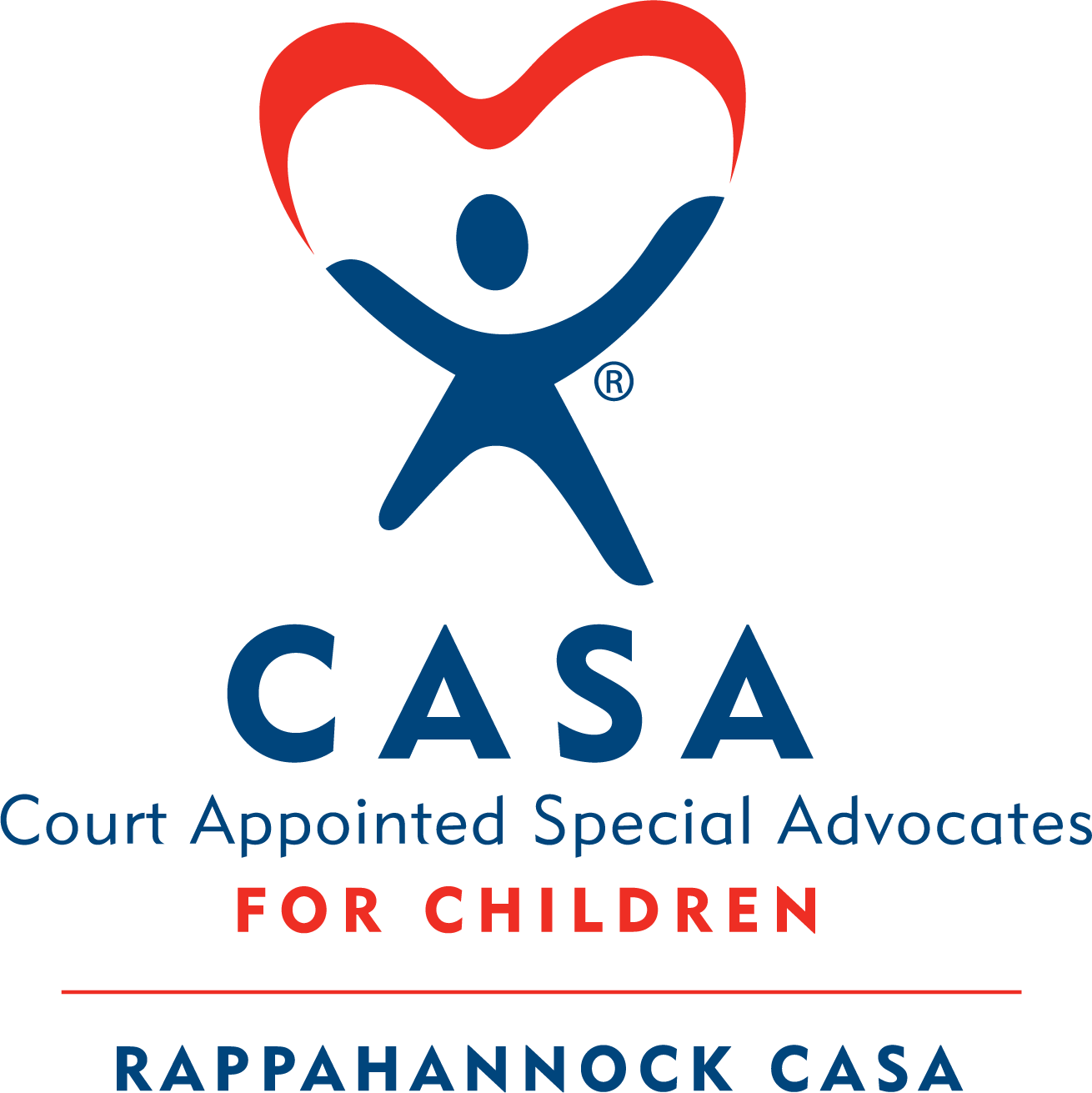FAQs & answers
What is CASA?
CASA stands for Court Appointed Special Advocates. The term CASA applies to both CASA programs and individual volunteers.
CASA volunteers are appointed by Juvenile and Domestic Relations Court judges to be Court Appointed Special Advocates for children. CASA programs train, supervise and support the volunteer advocates as they speak up for children’s best interests. Rappahannock CASA is one of 27 CASA programs in Virginia and one of more than 950 programs in the U.S.
CASA volunteers are sometimes described as “the eyes and ears of the court.”
What do CASA volunteers do?
CASA volunteers investigate abused and neglected children’s lives and advocate for their safety and needs — in court reports and in meetings with other child welfare professionals. To be effective, CASA volunteers gather lots of information. They talk with the children, their parents, foster parents, teachers and others, and they often review medical and educational records. The volunteers then write detailed reports to judges with recommendations about where the children can safely live and what services might help them heal.
Can anyone be a CASA?
Anyone 21 and older can apply to be a CASA, and no special educational or legal background is required. Effective CASAs are reliable, work well as part of a team and have strong communication skills. They can carefully gather and assess information, have time to serve and are good listeners.
Volunteers come to CASA with a variety of life and work experiences, and we strive to have a volunteer corps that reflects the diversity of the children we serve. All CASA volunteers must successfully complete background checks, an interview and our training program before being matched with a child. If you’re wondering whether CASA is a good fit for you, please explore this site and give us a call. (540-710-6199)
Rappahannock CASA provides equal employment and volunteer opportunities to all employees, volunteers and applicants without regard to race, color, religion, sexual orientation, gender identity, gender expression, marital status, national origin, age, disability or any other protected characteristic as established by federal or state law.
How helpful is CASA?
Rappahannock CASA submits CASA reports at nearly all court hearings involving the children, and these reports typically include several recommendations related to the children’s well-being. Each year, local judges incorporate the majority of our recommendations into their court orders. It’s not uncommon for local judges to remark on the value of information included in our CASA reports.
National CASA reports that children with a CASA are less likely to linger in foster care, more likely to be adopted or have another permanent placement plan, less likely to be expelled from school, and more likely to have a sense of acceptance and the ability to work out conflicts.
What training do CASAs get?
Do any other agencies do what CASA does?
What’s the time commitment?
It’s hard to nail down how many hours a week CASA work requires. CASA volunteers tend to be busiest at the start of a case, when they’re getting to know everyone, and in the weeks leading up to court hearings, when they’re preparing reports for judges. We tell volunteers to expect to spend 15-20 hours per month serving children, but the time can be more or less depending on the case.
CASA volunteers must meet in person with the children they serve at least once each month. They also spend time interviewing other people central to the children’s lives. Many of our CASAs have been with our program for more than 5 years.
Has COVID affected CASA’s service?
Rappahannock CASA has continued to provide high-quality advocacy throughout the pandemic. We have carefully adhered to guidance from the CDC and Virginia Department of Health, and our Board of Directors has established policies that guide our operations. Safety has been, and remains, our top priority. We are committed to minimizing the risks of transmission and illness.
Since the pandemic started, our COVID policies have included guidance on masking, risk assessment and what activities volunteers may participate in depending on their vaccination status. Our Board of Directors periodically reviews our policies, and detailed policies are communicated to our volunteers and volunteer candidates, who must agree to abide by them.
